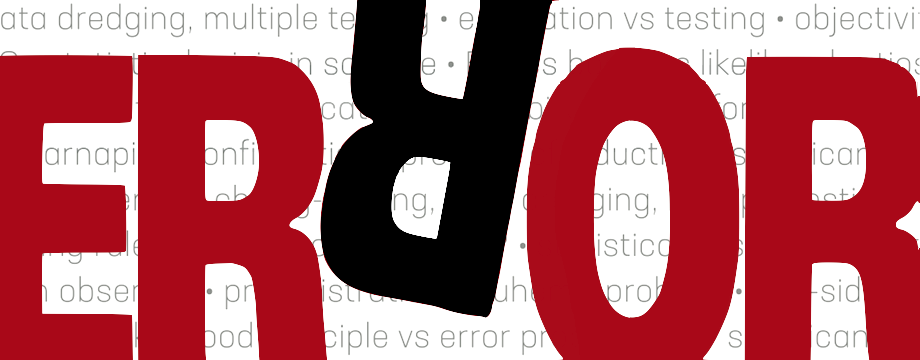I thought the criticisms of social psychologist Jens Förster were already quite damning (despite some attempts to explain them as mere QRPs), but there’s recently been some pushback from two of his co-authors Liberman and Denzler. Their objections are directed to the application of a distinct method, touted as “Bayesian forensics”, to their joint work with Förster. I discussed it very briefly in a recent “rejected post“. Perhaps the earlier method of criticism was inapplicable to these additional papers, and there’s an interest in seeing those papers retracted as well as the one that was. I don’t claim to know. A distinct “policy” issue is whether there should be uniform standards for retraction calls. At the very least, one would think new methods should be well-vetted before subjecting authors to their indictment (particularly methods which are incapable of issuing in exculpatory evidence, like this one). Here’s a portion of their response. I don’t claim to be up on this case, but I’d be very glad to have reader feedback.
Nira Liberman, School of Psychological Sciences, Tel Aviv University, Israel
Markus Denzler, Federal University of Applied Administrative Sciences, Germany
June 7, 2015
Response to a Report Published by the University of Amsterdam
The University of Amsterdam (UvA) has recently announced the completion of a report that summarizes an examination of all the empirical articles by Jens Förster (JF) during the years of his affiliation with UvA, including those co-authored by us. The report is available online. The report relies solely on statistical evaluation, using the method originally employed in the anonymous complaint against JF, as well as a new version of a method for detecting “low scientific veracity” of data, developed by Prof. Klaassen (2015). The report concludes that some of the examined publications show “strong statistical evidence for low scientific veracity”, some show “inconclusive evidence for low scientific veracity”, and some show “no evidence for low veracity”. UvA announced that on the basis of that report, it would send letters to the Journals, asking them to retract articles from the first category, and to consider retraction of articles in the second category.
After examining the report, we have reached the conclusion that it is misleading, biased and is based on erroneous statistical procedures. In view of that we surmise that it does not present reliable evidence for “low scientific veracity”.
We ask you to consider our criticism of the methods used in UvA’s report and the procedures leading to their recommendations in your decision.
Let us emphasize that we never fabricated or manipulated data, nor have we ever witnessed such behavior on the part of Jens Förster or other co-authors.
Here are our major points of criticism. Please note that, due to time considerations, our examination and criticism focus on papers co-authored by us. Below, we provide some background information and then elaborate on these points. Continue reading






